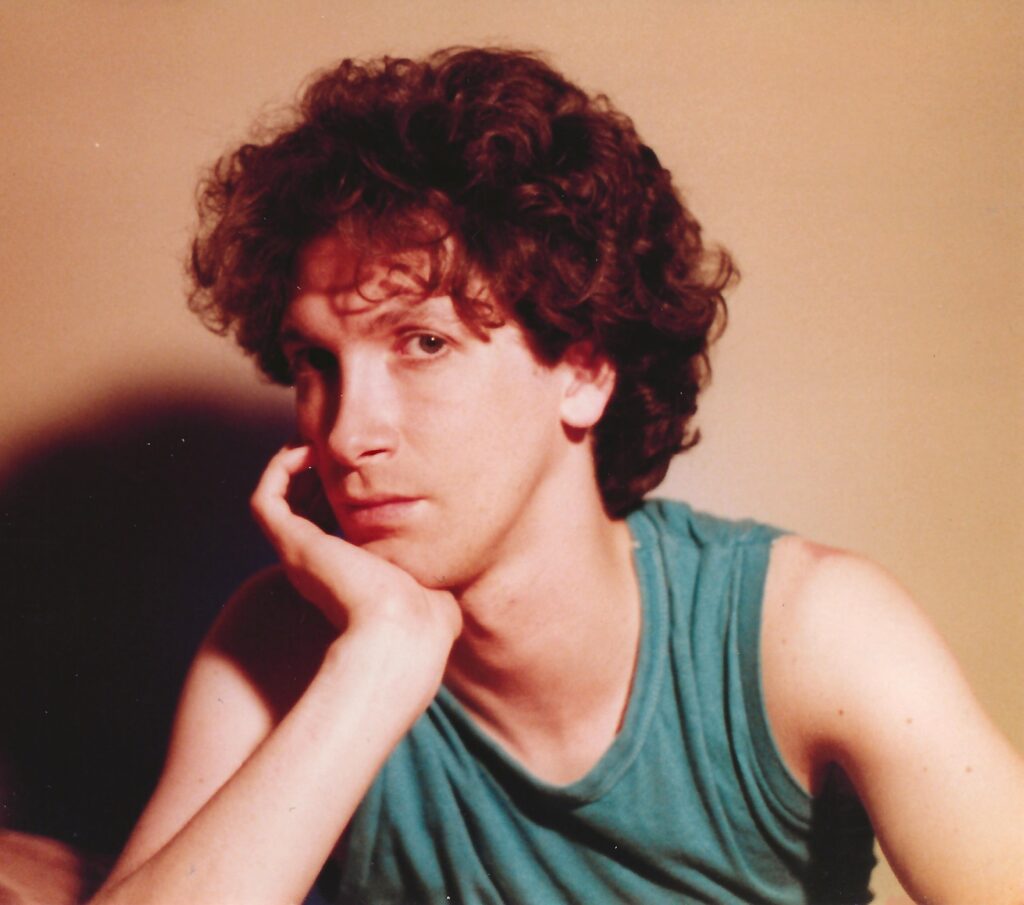A most unusual boy: Charles Busch on writing and performing women’s roles
Charles Busch‘s newly-released memoir is very aptly titled Leading Lady: A Memoir of a Most Unusual Boy. The book, which is out now, is a delicious and companionable romp through the golden ages of cinema, Off-Broadway and Broadway, with a truly unique narrator and protagonist guiding the way.
Charles Busch’s memoir may be titled Leading Lady but the legendary thespian is a “fella,” as he recently told me. While Busch has never questioned his gender or sexuality (cisgender gay male), his artistic self-expression is formed by his identification with strong women and great actresses. In this way, Busch became an actor-actress rather than a drag queen, although he has frequently been classified as one. And not only that: Busch authored parts for himself as a playwright so that he could walk in the shoes of his beloved heroines—fictional, mythic or historical. While they, too, have sometimes been classified as camp, the lineage Busch draws upon—classic stage melodramas, or ‘women’s pictures’ from the golden age of Hollywood—are the highest form of art to Busch. “I like being the heroine. I like being the winner,” he told me.
While female impersonation is as old as theatre itself, there is something about the work of Charles Busch that is both feminist and postmodern—and relevant to the current political persecution of this form of expression. To get our heads around this, and to enjoy and understand the life’s work of a singular New York artist, I caught up with Busch, speaking from his West Village apartment, in a wide-ranging and delightful conversation which has been edited for length.
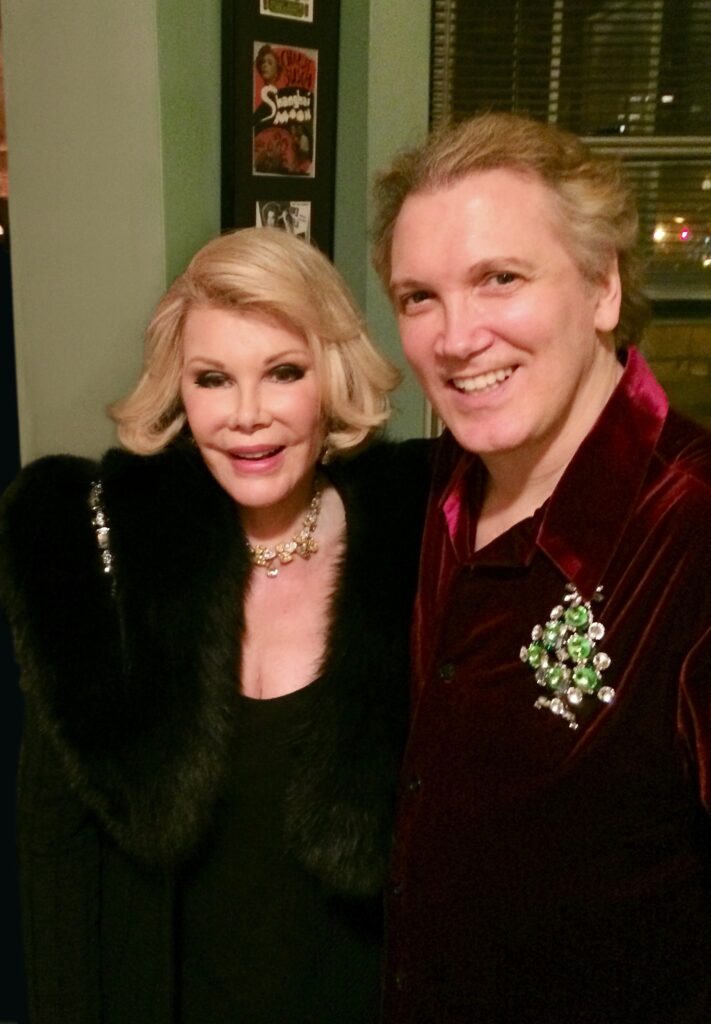

Queer Forty: I’ve always thought you have the most fantastic nose.
Charles Busch: My nose! It’s been slightly altered over the years. We’ve had some engineering. Fine tuning—like, Greer Garson fine tuning.
You have that old Hollywood glamour: Claudette, Colbert, Marlene Dietrich bone structure. Speaking of makeup, are you loving the artistry of contemporary drag culture?
Charles Busch: It’s just extraordinary painting, you know. Bianca Del Rio, or I know some of them, really paint on this extraordinary kind of mask, or a clown kind of look. As a drag performer, your style does become influenced by your physicality. I know the first time I saw myself in drag in college, I just had — even before my ‘tune-ups’ — I had small features, I’m only five foot seven and I was really too thin. And I had great legs, like the women in my family. And so it lent itself to a more naturalistic style [of drag]. And then, of course, all the imagery in my head was classic films and great stage actresses that I saw photos from the past, and that was who I wanted to evoke. So I was never into a very stylized look.
Drag for me was never really about satire or outrage. It was really about my love for actresses. And not only great screen actresses—my deepest love and fascination were for stage actresses who would never do films or who rarely did, like American actresses Katherine Cornell or Lynn Fontanne or, or even going way back, Sarah Bernhardt is really my ultimate role model and obsession. And so that’s who I wanted to celebrate.
I mean, in that way, it’s a very, almost feminist project.
Charles Busch: Well, absolutely. I was raised in matriarchal household, and I was really brought up by my aunt Lillian, because my mother died when I was seven. She was my mother’s older sister, who ultimately legally adopted me. And she was one of those ladies who really was feminist, but they didn’t really like using that term. One of her major themes in her monologues to me was that women are more morally, intellectually and even physiologically superior to men. Message I was always given. Then my two sisters are very, very fascinating, so there was always kind of, I guess, a feminist thing. And the movies that I loved, classic films—almost anything with Bette Davis or Katharine Hepburn or Greer Garson or Barbara Stanwyck—ultimately had a subliminal feminist message.
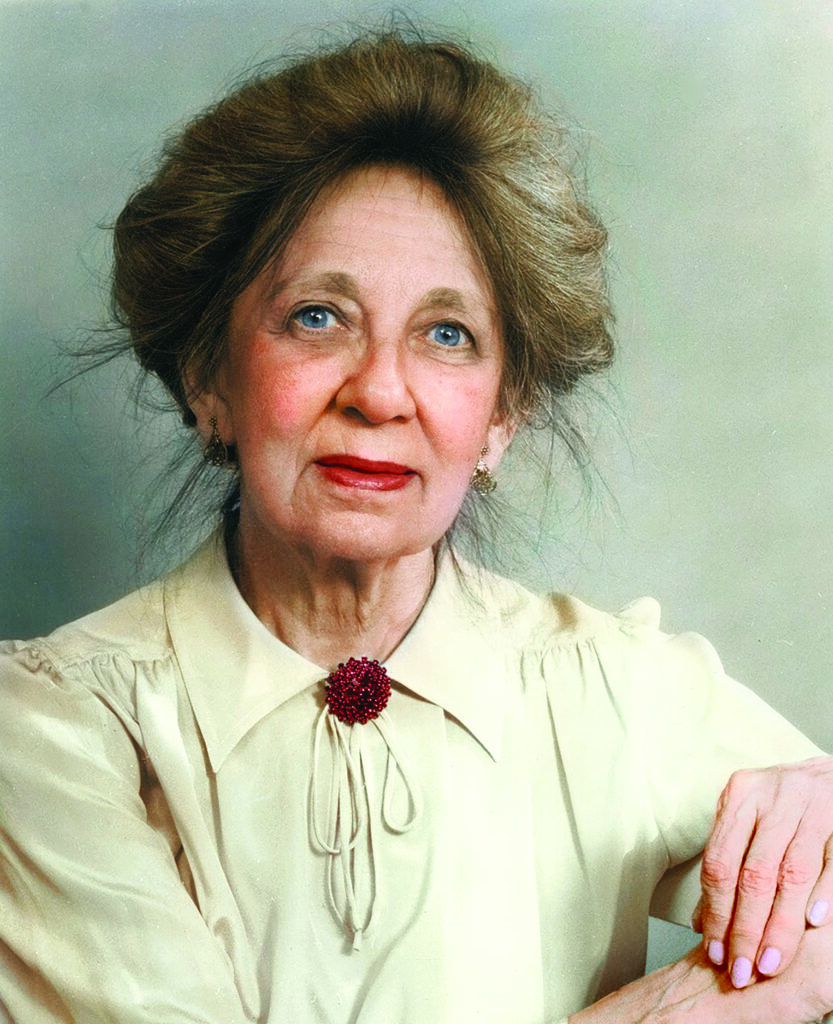
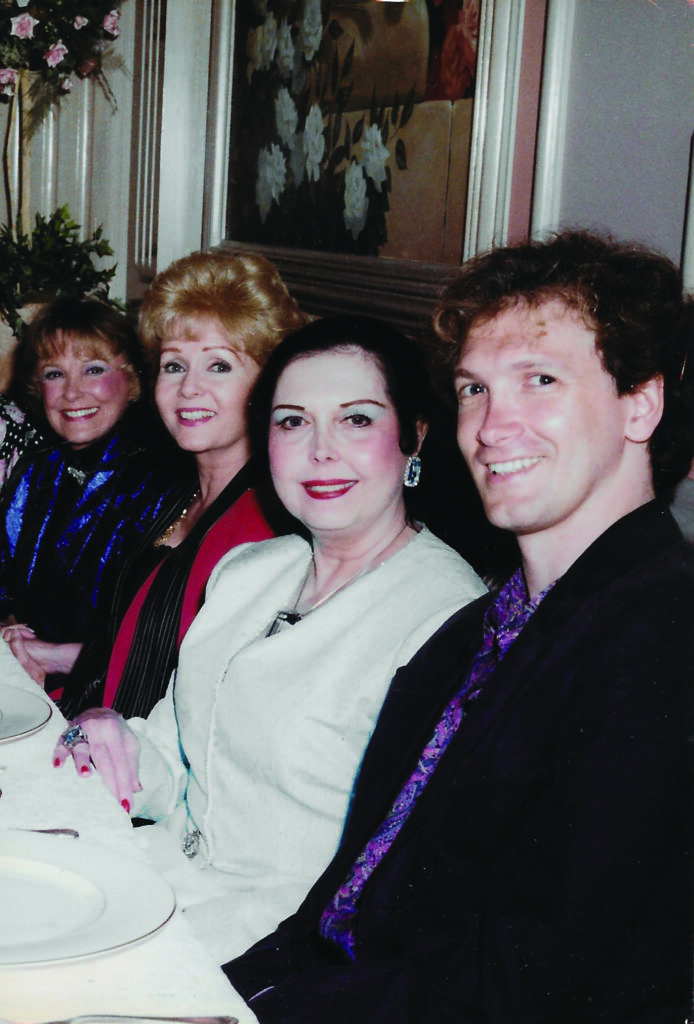
Back in the day, drag artists or female impersonators were considered mainstream entertainment. Did you see what you do as fitting into that tradition?
Charles Busch: I just have always thought of myself as as an actor, an actor playing female characters. Because it would seem that if you say you’re a drag queen, or even a female impersonator, it just sort of sounds like that’s the be-all and end-all of this, the main point of it. I’ve never performed in a club, or lip synced, or pulled my wig off at the end of the show, like they used to do in the 1950s. I’ve always been a playwright, writing these roles for me. And I discovered very early that I was sort of okay playing male roles. I’m fine. But I think when I play a female character, it at least says something and said something freeing to me that comes from a place of authority, rather than vulnerability.
When I think about reversing this as a concept, a woman wanting to channel her male side and then developing male roles for herself, I can’t think of many people who have sustained that. Maybe Murray Hill. Why is that?
Charles Busch: I guess there is a certain chapter, a drag king community but but yes, you’re right. I wonder if in a way it’s because the line traditionally between the authoritative woman in pants isn’t that different from a male impersonator? Maybe women have been, in some ways in the last 60 years, allowed to express their their male qualities easier than men. But there are [male impersonator] groups, they’re still around, but back in the 1980s, Split Britches, and feminist groups who used male drag. I have a new muse, a wonderful actress named Jennifer Van Dyck, who I’ve written numerous parts for in the last few years. And she has a kind of Katharine Hepburn, Garbo-esque androgyny to her.
I have always thought androgyny and cross-gender performance are helpful ways to dispel anxiety around traditional gender roles. There was so much anxiety about the binary as limiting or oppressive, but now that’s even more so with moving between or breaking the binary.
Charles Busch: I guess it certainly now is happening. It seemed like we were doing so well for a while. We were advancing in such an interesting kind of way. But I really do think it’s the right wing Republicans—things are going well with Biden, the economy is great, COVID seems to be under control. There’s really nothing for them to focus on except what they perceive as ‘woke’. You know, I wrote a play in 1991 called Red Scare on Sunset, set during the McCarthy era, and it was all about the extreme left and extreme right…I just think that today, all of this anti-LGBT, anti-trans activity is a very sinister and ugly ploy to have a scapegoat. Because there’s no other policy.
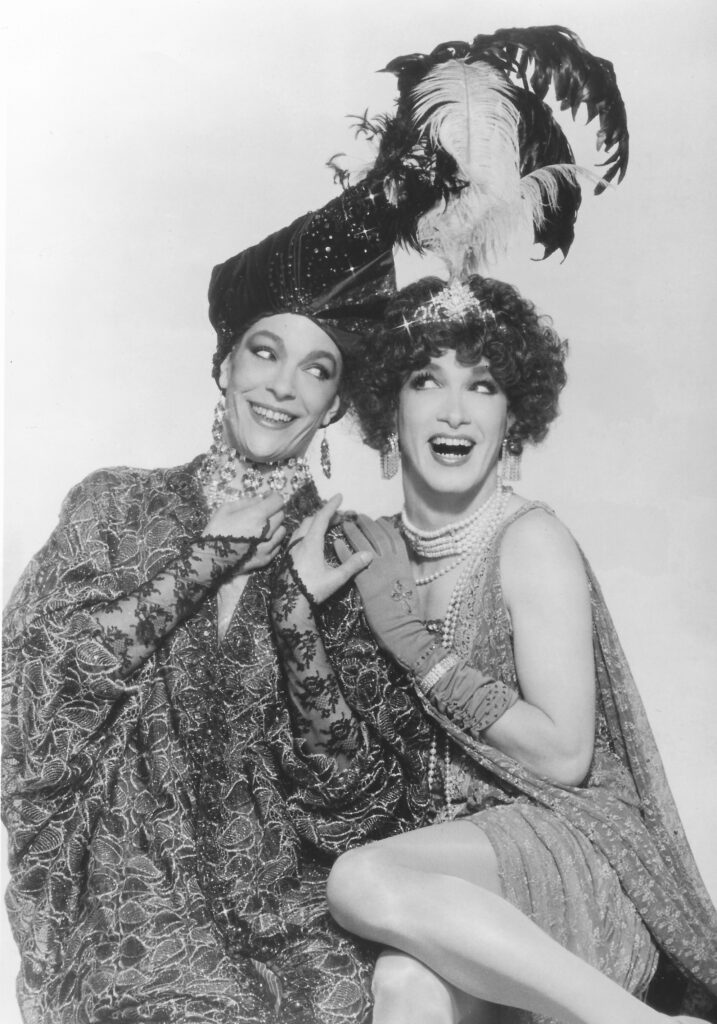

Your memoir Leading Lady is a delightfully easy read. It would be very meta if it was in the library and could be included in drag queen story hour.
Charles Busch: It is the book that I would want to read if I was 17. I worked on this for so many years, it’s embarrassing to admit that it’s 14 years I’ve been fiddling around with it. And I would stop and start and there’d be periods where I didn’t touch it. But, ya know, I’m very, very proud of it. It really is me. I’d say it’s total self-expression. My humor. My emotions. …Kind of a theme of the book is that I’ve always lived my life. I’ve often gotten into situations because I knew they’d make a good story. And even when I’m living it, I’m sort of editing it. A genuine belief of mine—particularly when I was just struggling to see if I could try to earn a living in the theater—was having a very good sense of my own persona. And so I thought it would just be interesting to see what it would be like if I stayed true to my own whimsical character, and became a male stripper, or, you know, cleaned apartments or worked for a rent boy service. I think a lot of people would change their characteristics to sort of suit the situation, and they would derive enjoyment from that. But for me it was the opposite. I wanted to be me and see how how I affect my surroundings, rather than my surroundings affect me.
The sex worker anecdote is both hilarious and authentic.
Charles Busch: I had so much fun doing that. No regrets at all. Maybe it was under a year, maybe nine months or something like that? Oh, it was so interesting. Fascinating. I learned a lot just about people and people in the closet. That was a lesson I learned: people that I would assume were straight or who were straight…had another private life.
I loved your anecdote about bumping into Greta Garbo while shopping in Manhattan and having this moment with her. What was your read on her because these golden age of Hollywood queers like Cecil Beaton and Garbo, they really defied classification at the time and all we really have is rumors about their queerness.
Charles Busch: What I tend to think for a lot of these people—Katharine Hepburn included—I think they’re basically gay, and yet, you know, under the right circumstances, could function sexually but [were] basically gay, and it’s just that people don’t really like using that term. … I think there are many people who led an authentic life, like the director George Cukor, who never had a lavender marriage and had his gay friends, his parties, but he played the game in Hollywood and if he was gonna go to the Oscars, he wouldn’t bring a male companion, he’ll bring Joan Crawford, but otherwise, it’s an authentic life. He’s not living a lie.
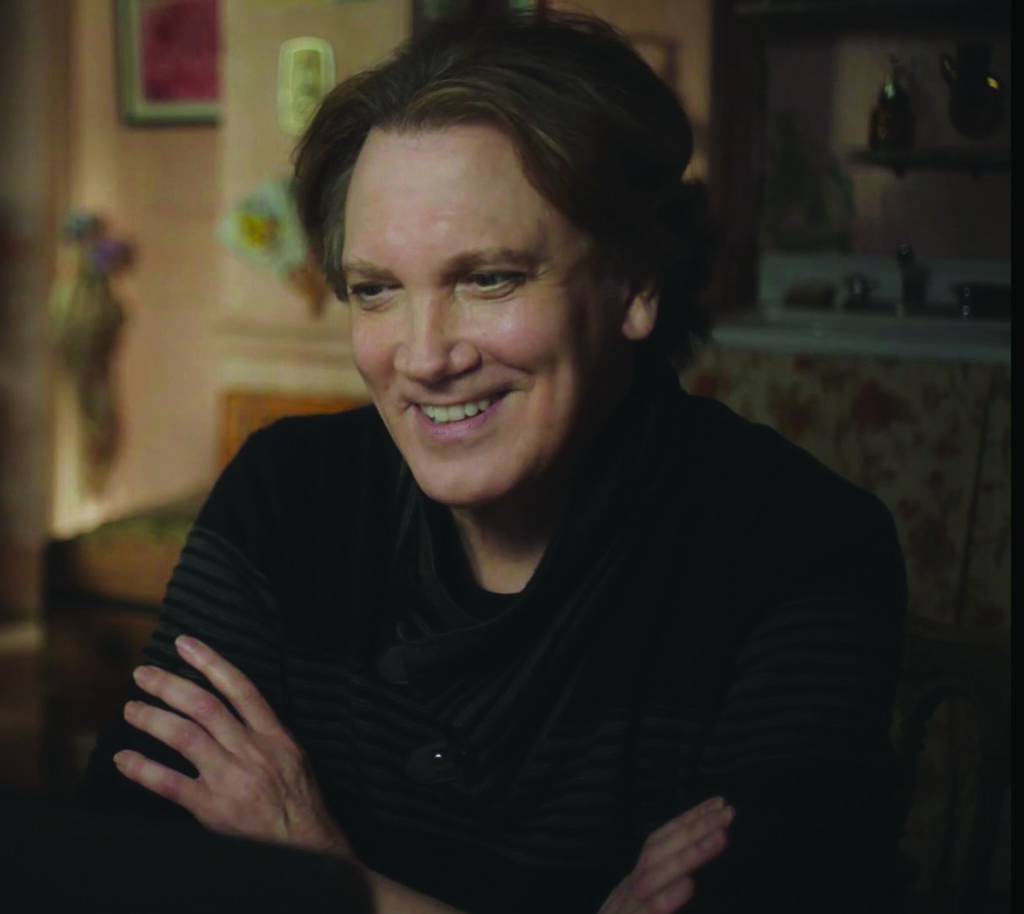
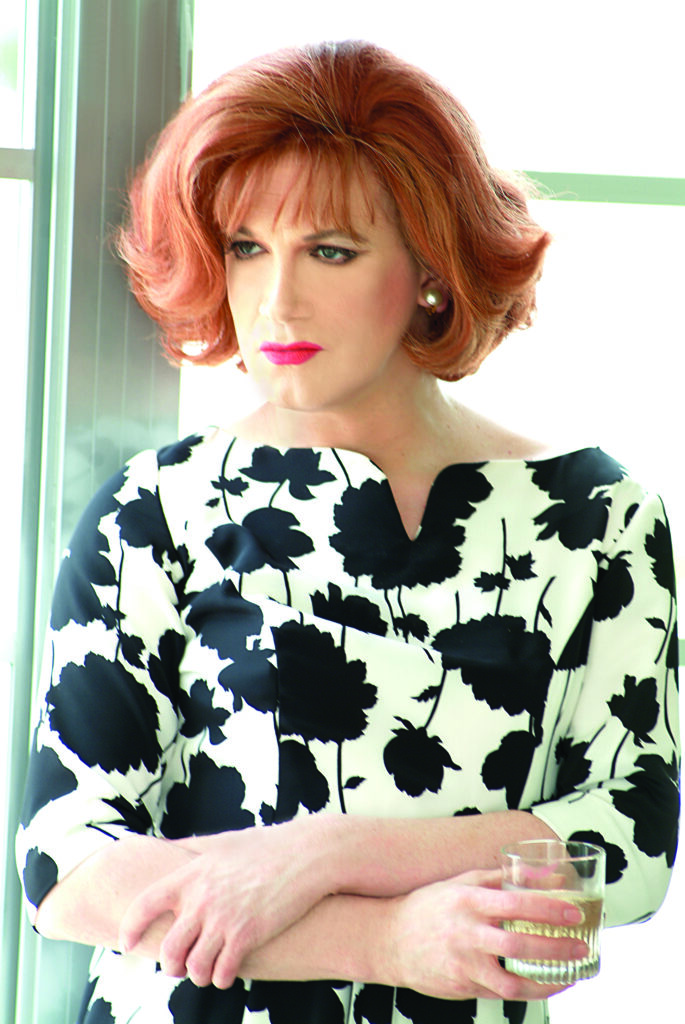
There are some wonderful anecdotes in the book, such as your encounter with the great stage actress Zoe Caldwell, when she comes backstage and gives you a piece of her mind.
Charles Busch: I give myself credit that, you know, even though she was my idol, and I would have preferred if she thought I was just divine: the fact that she cared enough to really straighten me out as far as being a big ol’ hambone—I appreciated it. It did set me off on a lifelong journey of trying to play more honestly and not pandering to an audience.
I think honesty is why she went on to be so good in Masterclass. And to adopt her advice rather than disregard it feels very feminist. It struck me that you’re doing something that we’ve always told women to do in theater and film: if there’s not a great part there for you, write one.
Charles Busch: I was very fortunate that my talent for writing kept growing because it would have been no career for me had I just tried to be an actor and compete for roles. Number one, there were no roles. When I started out [playing] androgynous young men, there were no plays written [for them] yet. But when they were, as I said, I was fine. Not terrible, fine. I had a recurring role (Nat Ginzburg) on that TV series, Oz, and the role was written for me, I didn’t have to audition for it. And it was rather devastating, frankly, for me, when I watched the scenes where I was out of drag—I’m okay, but I’m a little awkward. And then suddenly there I’d be in drag and I was so effortless and with great authority and vocal variety. And I remember being so upset and asking my director at the time in theater, Ken Elliott, to watch it and he said, ‘Don’t be so harsh on yourself. That actress has played thousands of performances, and that actor has hardly ever worked.’


Of all the roles you’ve written, if you just had one you could play again to do a revival, what would it be?
Charles Busch: The Confession of Lily Dare. I really adore it because I got a sort of Madame X story and become a glamorous cabaret entertainer, then a madame with a string of bordellos. And then ultimately, she’s an alcoholic. I gave myself the opportunities to really have poignant moments, particularly toward the end, and she’s reunited with the daughter that she gave up in infancy. And I’m a bit of a frustrated, dramatic actress as most comic players are and so I love playing dramatic scenes. And then other than that, there’s a play that we did in 1989 that I just adored called The Lady in Question and it was a homage to the Nazi war melodramas of the ’40s. I played an impossibly self-absorbed, glamorous international concert pianist touring in Bavaria who gets mixed up in a plot to rescue an actress from Nazi prison. So my character has to go from terribly self-absorbed person to selfless patriot in the course of two hours. That part was very Greer Garson-Joan Crawford.
What is a role you didn’t write that you’d love to play?
Charles Busch: I’d like to play Madame Ranevskaya in The Cherry Orchard. I’d like to play Marguerite Gautier in La Dame aux Camélias. Charles Ludlam did such a brilliant adaptation [in 1973], so I’d be setting myself up.

If anyone can achieve the impossible through their own creative will, it’s Charles Busch. If you can’t see him live, try to track down his films: Die, Mommie, Die!, Psycho Beach Party, and most recently, The Sixth Reel.
Yet to come to the stage in early 2024 is another Busch opus, which he describes as his “most ambitious” work to date: A distillation of all the female characters and women in the life and work of legendary playwright, Henrik Ibsen. That show will be coming to Primary Stages in New York in February. “I have no hobbies, so I gotta do something,” Busch says.
When we talk, Winter seems so far away and it’s a heatwave in Manhattan but Busch has his windows open and finds it “rather pleasant.”
“But I’m a cool character,” he laughs.
He certainly is.
Get Leading Lady by Charles Busch here.

